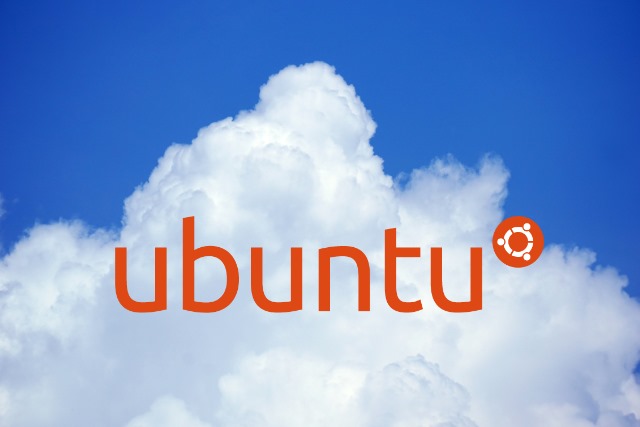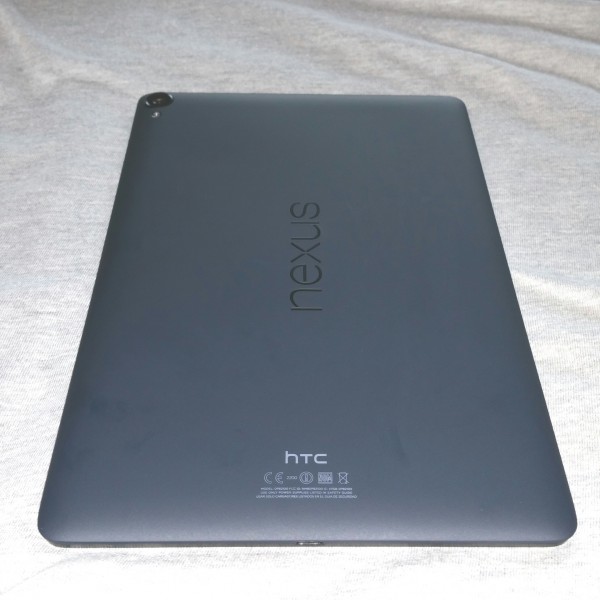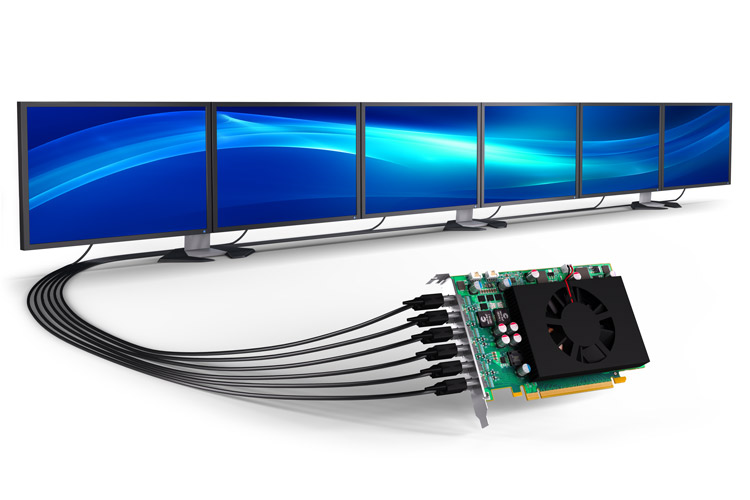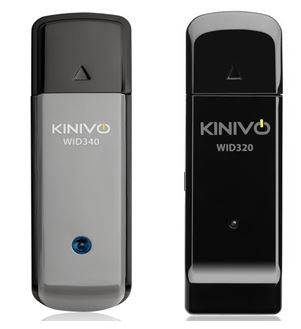
Certified Ubuntu images float their way into Google Cloud Platform
Working in conjunction with Google, Canonical is launching a public beta of Ubuntu for Google Cloud Platform. These are part of the Certified Public Cloud (CPC) programme which means that the cloud versions of Ubuntu will be updated just about as quickly as the regular ground-tethered versions. Images for Utopic Unicorn, TrustyTahr, and Precise Pangolin releases are now available on Google Compute Engine.
The Ubuntu 14.04 LTS, 12.04 LTS releases benefit from the regular five years of maintenance and security updates, while 14.10 has a shorter shelf-life. Taking Ubuntu to the cloud serves as an alternative to the likes of Azure for anyone looking to venture into cloud platforms without breaking the bank.

Nexus 9 -- The first 'magical' Android tablet [Review]
My first-ever tablet was the first-generation iPad. I loved Apple's tablet very much, but ended up selling it to buy the Nexus 7. My decision made sense, as the iPad was nearing end of life, while Google's tablet was just beginning.
The Nexus 7 was awesome, but it lacked the same magic as Apple's tablet. Yes, I am using the word magic to describe the iPad, a much maligned word for Apple's detractors. To explain, the "magic" I speak of, was the emotional connection that I had with iPad; something that did not exist with both Nexus 7 models. Don't get me wrong, both Nexus 7 tablets were great and functional, but also cold and smartphone-like. Now Google releases the Nexus 9 and it finally has the feature I desire most -- magic.

Woof! Woof! Puppy Linux reaches version 6.0 -- fetch it now!
Linux is pretty darn awesome when used on super-powerful machines. However, where the kernel really shines is when operating systems leverage it for less powerful computers. In other words, Linux can breathe new life into old computers thanks to lightweight distributions.
One of the most infamous lightweight distros is Puppy Linux. Aw, puppies are cute, right? Sure they are, but so too is the operating system that bears the name. You see, it loads from a CD/DVD or flash drives, but it runs from system RAM, making it quite fast (and secure). Today, Puppy Linux achieves 6.0 release, and you can download it now.

The Document Foundation aims to push LibreOffice adoption in the workplace
Who doesn't like free stuff? Not many people, but there are various definitions of free. Free as in beer, free as in speech, and so on. The open source software movement combines these two ideas, and many more, by making software freely available to anyone who wants to use it, and also affording them the right to tinker with the code and change it in whatever way they want. It's one of the foundations of Linux, and it's a philosophy that -- in increasingly cash-strapped times -- is gaining momentum.
The Document Foundation, creator of the LibreOffice variant of the free OpenOffice suite, today announces that it is joining the Open Source Business Alliance. The aim is to help with the deployment of the free office suite on larger scales within companies and organizations.

Ubuntu 14.10 Utopic Unicorn is here -- Linux fans, download now!
Not only is Ubuntu one of the most user-friendly Linux distributions, but it also gets many timely releases. Say what you want about it, but the overall experience is second to none. I would not hesitate to recommend Ubuntu to both Linux beginners and experts alike.
After we just learned the name of the future version of the OS (15.04) to be Vivid Vervet (it is coming in 2015), Canonical releases Ubuntu 14.10 Utopic Unicorn today. Linux fans can download it now!

Linux distro Ubuntu 15.04 gets its name -- Vivid Vervet
Ubuntu has become one of the most popular and influential distributions of all time. It is easy to use, well designed and has a large and helpful community. Despite its general greatness, it uses a rather silly naming convention, based on sequential letters. That letter is used in the start of two consecutive words; the first being an adjective and the second being an animal. Is it fun? I suppose. Actually, it isn't too different than Android, which also uses sequential letters, but for yummy sweets.
Today, Mark Shuttleworth, Canonical CEO, announces the latest name, for the upcoming 15.04. For this release, the letter V is being used. The adjective? Vivid. The animal? Vervet. Yes, the next version of Ubuntu is Vivid Vervet, but what the hell is a vervet?

Netflix officially comes to Ubuntu Linux by way of Google's Chrome browser
As a Linux user, I understand the pain of using it exclusively on the desktop. Sure, you may find that a Linux distribution does everything you want, until it doesn't. Life is known to throw curve-balls, and new needs and wants often come along to spoil the party. Oh, a new obscure piece of hardware has been released? Sorry, no Linux support. Oh you want to watch Netflix? Sorry buddy, Linux is not welcome -- or is it?
Actually, starting today, Netflix is now compatible with Linux; well technically, only Ubuntu and only on the Chrome browser. Still, the open source desktop community is in need of a win, so I'll chalk it up as one. Despite the narrow availability, Netflix is here -- fire up that System76 laptop and get watching!

Sorry Linux fans, Windows 10 will continue Microsoft's desktop domination
I'll admit, when Windows 8 was first announced, I hated it. Even though I am open-minded about UI changes, the Start Screen rubbed me the wrong way. At the time, I was strictly a keyboard and mouse user, who enjoyed doing things on a large monitor. After months of trying to convince myself that I would eventually like the changes, I gave up and went to Linux full time. I was already a casual user of operating systems based on the open-source kernel, but now I was jumping in head first.
Initially, life was great and I hopped from distribution to distribution trying Ubuntu, Mint, Fedora and many more. What was cool about these Linux-based desktop operating systems, was that I could choose the environment of my liking. In other words, if I didn't like the UI, I could easily switch. This was in stark contrast to Windows, which has a take it or leave it approach. Ultimately, I decided on Fedora and the GNOME 3 environment. This surprised me, because as a lifelong Windows user, I expected to gravitate towards KDE. Over time though, something strange happened -- I went back to Windows 8.

Shellshock bug is bad and could take years to eradicate say experts
Ever since yesterday’s news of the Shellshock Bash bug broke cyber security experts have been lining up to make clear how bad it really is.
Unlike Heartbleed, which affected mainly servers, Shellshock leaves a whole host of systems vulnerable including Apple OSX systems and many internet of things devices with embedded code that’s based on Unix or Linux.

Shellshock Bash bug could be bigger than Heartbleed
Although it seems that the Heartbleed bug wasn't exploited before its existence was disclosed, that doesn’t mean the security world can rest on its laurels.
The latest problem to be revealed is a bug in the commonly used Bash command interpreter that poses a critical risk to Linux and Unix systems. And since these form the backbone of the internet and are in many other systems as well it's a threat to the rest of us too.

Fedora 21 Alpha is finally here -- Linux fans, download it now!
Choosing a Linux distribution is much like choosing a car; there are many types. When people find a car company they like, there is a good chance that they will remain loyal. Believe it or not, I have only ever owned a Ford and I plan to keep it that way. My loyalty is not blind however, as I still demand a consistent quality product.
Much like my loyalty to Ford, I am also a Fedora loyalist as I love the foundation and yum package manager. Hell, I am also a huge fan of the GNOME environment, and Fedora is a great way to experience it in a pure state. Sadly, the Linux distro has been falling behind with version updates and we are approaching a year since the last one. Today however, Fedora 21 Alpha sees release, bringing us closer to a final product.

Linux Mint 17.1 gets yet another female codename -- is it sexist or endearing?
For some reason, people tend to name inanimate objects after women. Whether it's something like a gun, car, or guitar, a feminine moniker may be attached. Sure, it is arguably sexist, but I would argue it isn't, since a negative connotation is not attached. People love cars, guns and guitars; the name is a term of endearment.
While I love cars as much as the next guy, I also love technology. One of my favorite hobbies is tinkering with Linux and Mint is a distribution I use often. This distro is usually named after women, such as Lisa, Olivia, and Nadia to name a few. Today, the Linux Mint team announces the newest codename.

Matrox announces the C-Series -- quad and six-head graphics cards for Windows and Linux
When enthusiasts hear the term "graphics card", images of gaming cards are conjured. However, gaming cards and graphics cards are not synonymous. No, believe it or not, people use computers for things other than Wolfenstein and Crysis. Actually, there are many uses, such as powering multiple monitors for things like advertising, security monitoring and media events. Hell, a business may utilize a multi-monitor setup for a litany of reasons.
Today, long-time hardware manufacture, Matrox, announces a pair of sexy graphics cards aimed at the business world. Dubbed the "C-Series", they are based on AMD GPUs and can power either 4 or 6 monitors. Whoa.

Kinivo releases a pair of inexpensive Linux-friendly USB wireless adapters
Nowadays, if you buy a laptop, it will have a built-in wireless card (desktops; not always). For the most part, these integrated cards work well -- on Windows. You see, most manufacturers build their machines with only Windows in mind. If you only use Microsoft's operating system, you should be golden. However, for nerds that like Linux (including myself), nonexistent or problematic wireless drivers can be an absolute nightmare.
This is why I recommend a USB wireless adapter to every Linux user; you never know when you may need it as permanent or temporary internet solution. Unfortunately, not all USB adapters work with Linux out of the box, so the model you choose matters. Today, Kinivo releases two USB wireless adapters that are promised to work with Linux-based operating systems.

Gentoo Linux 20140826 Iron Penguin Edition -- open source fans, download now!
There are so many Linux distributions to choose from. Depending on your perspective, this can be a good or bad thing. You see, for many, using Linux is about choice -- you get to choose the distro, packages and environment. There is truth to this; however, many others, including myself, often wonder if the community's efforts are too fragmented. In other words, when talent is spread thin, progress may be slowed.
One distro which should not be discussed in this debate is Gentoo; it has been around for 12 years and is not some recently launched project. Hell, Google chose this distro as the base for Chrome OS, so it must be good; seriously, the search-giant's operating system is pretty darn stable. Gentoo Linux has reached version 20140826 and it looks like a winner.
